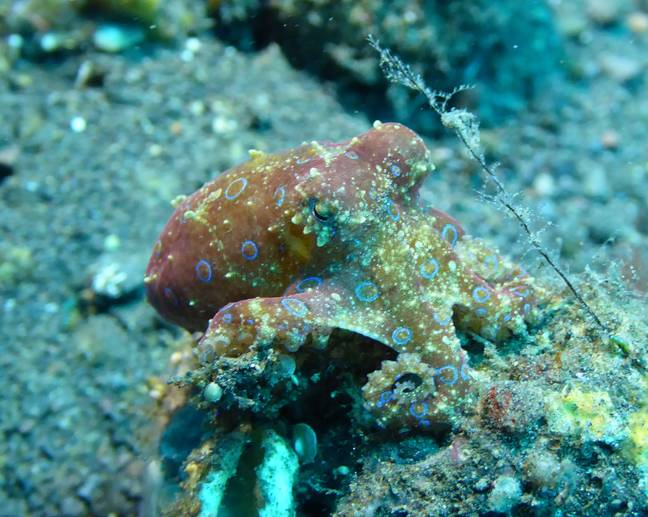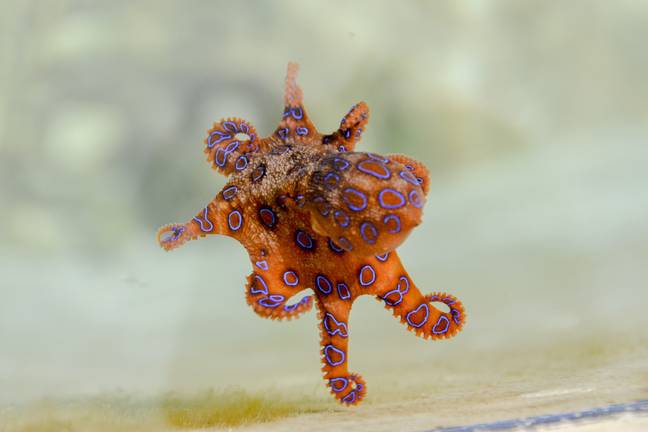A woman was bitten by a potentially deadly octopus at a popular beach spot in Australia on Thursday, leaving her needing hospital treatment.
The woman was swimming in the sea when she picked up a shell, before the octopus fell out of it and bit her twice on the stomach.
Paramedics were then rushed to the scene at around 2.45pm, with the woman reporting that she was feeling abdominal pain in the area surrounding the bite.
The paramedics applied a cold compress and pressure to the area, before the woman was taken to the Royal North Shore hospital in a stable condition where she was monitored and provided with further treatment.
 The blue-ringed octopus is very venomous. Credit: Pixabay
The blue-ringed octopus is very venomous. Credit: PixabayNew South Wales ambulance inspector Christian Holmes said: “A blue-ringed octopus bite is a rare call for us but they are extremely venomous.”
The blue-ringed octopus gets its name from the bright iridescent markings it can display if it's feeling threatened.
They are definitely very venomous, with one octopus capable of producing enough venom to kill as many as 20 people.
The octopus produces a fast-acting toxin that causes paralysis in bite victims and can be fatal.
It's called tetrodotoxin and it's produced by a number of creatures, including the pufferfish and porcupinefish.
At least two people have died because of blue-ringed octopus bites in Australia and Singapore, as reported by the Australian Institute of Marine Science.
Most bite victims don’t die provided they are given oxygen, but the toxin causes muscles – including those within the respiratory system – to become paralysed, meaning that death can occur through lack of oxygen.
Those who are bitten tend to make a full recovery though, provided they are given enough air manually.
The octopus is not known for being aggressive, and for the most part is shy, although they are common on the Australian coastline.
 They are not aggressive, however. Credit: Pixabay
They are not aggressive, however. Credit: PixabayThey can often be mistaken for other types of octopus, given that the blue rings that make them so distinctive and give them their name are only visible when the creature feels threatened.
Basically, if you see the blue rings, it’s time to leave the octopus alone.
The blue-ringed octopus can be found in the Pacific and Indian oceans, living in tidal pools and coral reefs.
They are one of the most venomous creatures in the sea, but spend much of their time hiding in areas such as crevices, and – crucially in this instance – shells.

